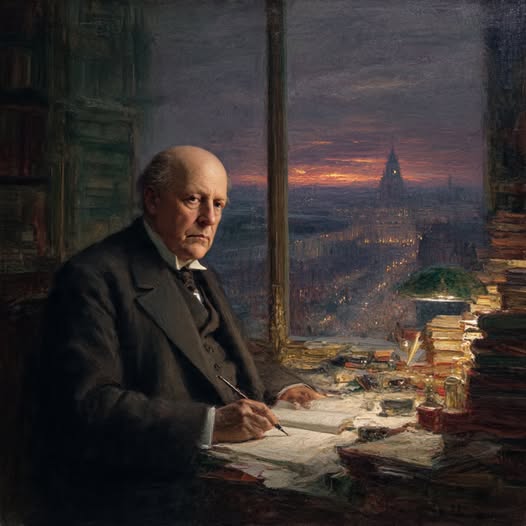Henry James (1843–1916) was one of the greatest American writers of the 19th and early 20th centuries, known for his deep psychological insight, elegant prose, and exploration of human consciousness. Although born in New York City, James spent much of his life in Europe, where he developed a unique literary voice that combined American themes with European sophistication.
James’s work often focuses on the contrast between the Old World (Europe) and the New World (America), exploring the moral and psychological differences between the two cultures. His characters frequently face conflicts between innocence and experience, freedom and tradition, or emotion and intellect. This theme can be seen in some of his most famous novels, including The Portrait of a Lady (1881), The Wings of the Dove (1902), and The Ambassadors (1903).
What makes Henry James remarkable is his psychological realism — his ability to explore the inner lives of his characters with great sensitivity and complexity. Instead of focusing on external events, he was more interested in how people think, feel, and perceive the world around them. He developed a distinctive narrative style that often used limited or shifting points of view, allowing readers to experience events through the consciousness of his characters. This innovation had a profound influence on modern fiction and writers such as Virginia Woolf, James Joyce, and Marcel Proust.
In addition to his novels, James also wrote short stories, literary criticism, and essays on art and society. One of his best-known shorter works, The Turn of the Screw (1898), remains a classic of psychological horror, blurring the line between the supernatural and the human mind.
Throughout his life, Henry James explored the complexity of human relationships, the challenges of identity, and the subtle power of emotion and thought. His elegant, thoughtful writing demands patience and reflection, rewarding readers with deep insight into the human condition.
Henry James’s contribution to literature lies not only in his stories but also in his style — refined, observant, and profoundly human. Today, he is remembered as a bridge between realism and modernism, a writer who transformed fiction into a mirror of the mind.

